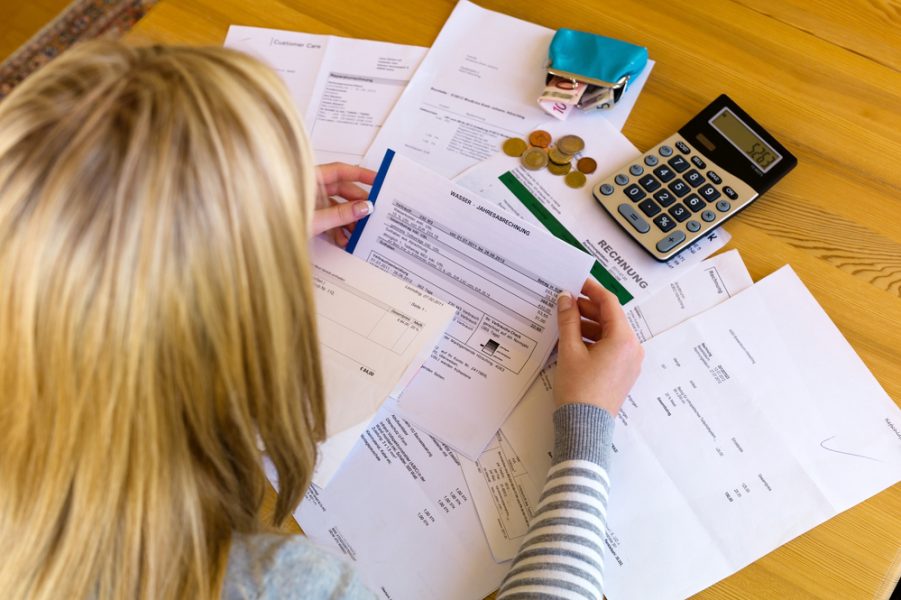You experience high levels of stress if you have piling debt and you struggle to pay your bills. Things take a turn for the worse when debt collectors threaten to have you arrested if you don’t pay your credit card debt.
Understandably, you may worry. Can you go to jail for unpaid credit card debt? The short answer is no, you can’t go to prison for failing to pay a civil debt, such as credit card and hospital bills. Under the Fair Debt Collection Practice Act, debt collectors can’t threaten you with jail time. The FDCPA considers this act as illegal, and you may sue debt collectors if they violate this federal law.
However, debt collectors can pursue other legal methods to recoup their losses like suing you for unpaid credit card debt. They can also use tactics, such as requesting for your arrest if you failed to appear in court hearings, in which case, you might land in jail for civil contempt of court. That is allowed in some states in the US.
What Can You Do to Avoid Jail?
You won’t have problems with debt collectors contacting you all the time if you pay your credit card debt responsibly. You should at least meet the required minimum payment every month. This won’t do much in terms of reducing your debt since your outstanding balance will incur interest, but this can prevent you from having delinquent accounts.
What happens if you don't even pay the minimum sum on your credit card debt? The debt collector can sue you. If legal action was taken against you, never ignore the lawsuit. Debt collectors may ask the court to issue a warrant for your arrest if you fail to follow a court order. Once this happens, the charges against you will be for ignoring the court order and not because you failed to pay your credit card debt.
To avoid all these, you need to do the following:
- Never ignore court notices and orders.
- Attend the hearings.
- Find credit counselors who can help determine the best way to deal with your credit card debt. They may even assist in negotiating with your creditors to create a debt management plan.
- Talk to a local consumer attorney.
Filing for bankruptcy can also provide you with relief from credit card debt although this should be taken only as a last resort as there are other negative implications of bankruptcy.
History of Credit Card Debt and Jail Time
Debtors’ prisons were used from the late 1600s to the early 1800s as a place to detain people who failed to pay back their debt. In 1833, these detention facilities were banned under US federal law. However, some debt collectors continued to threaten debtors with jail time if they don’t pay the money they owe. So, the US government passed the Fair Debt Collection Practices Act in 1977, which limits what debt collectors can say or do when trying to collect unpaid debt.
You have three options to choose from if you want to report a debt collector who has been harassing, threatening, or treating you unfairly.
However, there are states where you can go to jail for debt over civil contempt as mentioned above. These states are:
- Ohio
- Missouri
- Minnesota
- Illinois
- Pennsylvania
- Arizona
- Florida
- Indiana
- Oklahoma
- Utah
- Washington
You’ll be in jail for contempt until you post a bond, which is coincidentally the same amount that the debt collector was able to obtain in a judgment order.
What Happens to Your Unpaid Debt?
If you’re 30 days late in paying your credit card debt, your creditor will take steps to remind you of your dues. These may be through phone, letter, or email. If you’re 60 days late, you may face higher interest rates due to penalties incurred for late payments. If you still can’t pay your credit card debt after 90 days, your account may be suspended and creditors will ask you to settle your balance in full.
Once your account has been charged off by the credit card company (creditors declare that the debt is unlikely to be collected), your account will be passed on or sold to a debt buyer or debt collection agency. Charge-offs usually happen after 180 days of non-payment. Debt collectors will then pursue you to get back the money you owe.
What Can Debt Collectors Do?
The FDCPA protects consumers from aggressive debt collectors, but the latter can also use the legal system to their advantage. They can take you to court over unpaid credit card debt, and if you fail to appear in court hearings, you may find yourself locked behind bars for contempt.
That’s why you need to attend court hearings to avoid a default judgment. That means the court rules in favor of the debt collector because you failed to respond to the court summons or you didn’t appear in court.
When this happens, the court will award the debt collector wage garnishment, bank account levy, or property levy to pay the money you owe. Wage garnishment happens when a court orders your employer to hold back a portion of your paycheck and send it directly to the debt collector to whom you owed money. Meanwhile, levying your bank account means the debt collector will take funds from your bank account and apply it to your outstanding debt. They can also seize valuable properties, such as your car or house.
Then, the court may issue a warrant for your arrest for ignoring the court order. Once that happens, you’ll be in prison for not following the court order until you post a bond.
If you have a disability or you’re over 60 years old, the law requires the court to dismiss the judgment, especially if you have exempt properties only. You’re classified as handicapped if you have mental or physical conditions that limit you from functioning in at least one major life area.
Can You Go to Jail for Other Types of Debt?
Yes. Failure to pay taxes and child support can land you in prison. You’re violating federal law if you fail to pay your taxes and you’re ignoring a court order if you don’t make child support payments.
How Does Debt Affect Your Credit Score?
How much money you owe plays a crucial role in determining your credit score. It accounts for 30% of the credit score, and that means you’ll have a lower score if you have lots of debt. Aside from that, your credit utilization (the ratio between your credit card limit and credit card balance) for every credit card you have will also be factored in.
How Can You Get Credit Card Debt Under Control?
If you’re relying on your credit card to keep yourself afloat during tough financial circumstances, you’ve probably amassed lots of debt. Fortunately, there are things you can do to keep it under control and avoid encountering problems with debt collectors.
1. Pay Down Your Credit Card Debt as Soon as You Can
Paying off your credit card debt is easier said than done, especially when money is tight. But by paying them off as early as you can, you won’t have to worry about high-interest rates. Instead of buying unnecessary items or services, why not use the extra cash to pay off your debt instead?
2. Create a Strategic Approach to Managing Your Debt
Paying off your debt on a tight budget means you have to come up with a strategic plan so that you don’t end up using all your money to settle the amount you owe and be left with nothing to support yourself and your family. You should begin by setting a minimum amount of payments for every credit card you owe money to.
3. Keep Track of Your Spending
Whether you’re financially constrained or not, it’s a good habit to monitor your spending, especially when you’re using your credit card. Without keeping track of your expenses, it’s easy to get in debt due to impulse and incidental purchases. Don’t wait till it’s too late. Only purchase things that you need and monitor them closely.
4. Talk to your credit card providers
If you notice your debt piling up and you don’t think you can make timely payments, you should be proactive and talk to your credit card issuers. They may be able to come up with a repayment plan that’s suitable for your current financial situation.
5. Don’t stop at paying off your credit card balances
Once you’ve paid off all your credit card debt, don’t forget to set up an emergency fund to help you when unexpected bills and payments are required. This will help you develop good money habits, which is important when maintaining a good credit score.
Conclusion
Falling behind on credit card payments has lots of consequences. You’ll receive calls from your creditor, you might face a lawsuit, or worse, file for bankruptcy. You may not be sent to jail for not paying your credit card debt, but it can wreak havoc in your personal and public life.
Fortunately, the FDCPA prohibits debt collectors from harassing you or threatening to send you to jail if you don’t pay your debt. However, they can also find their way around the FDCPA to force you to pay your dues by taking legal action against you. When that happens, be sure to take the legal proceedings seriously and legally. If you don’t, you may be sent behind bars and pay penalties as well.
Now that you know what happens if you don’t pay credit card debt, you should be more careful about how you use your credit card. Be a responsible credit card holder and spend only what you can pay.








